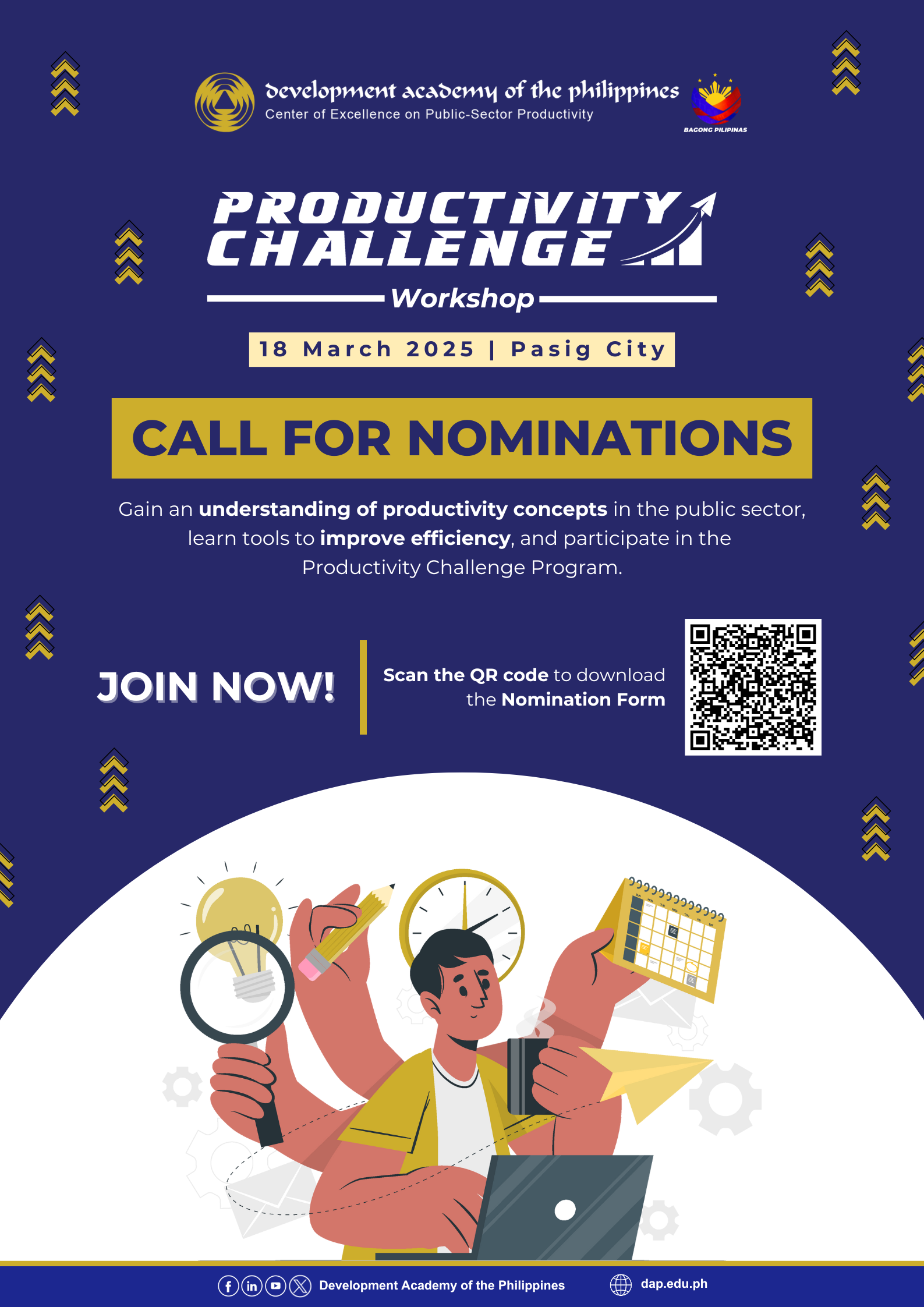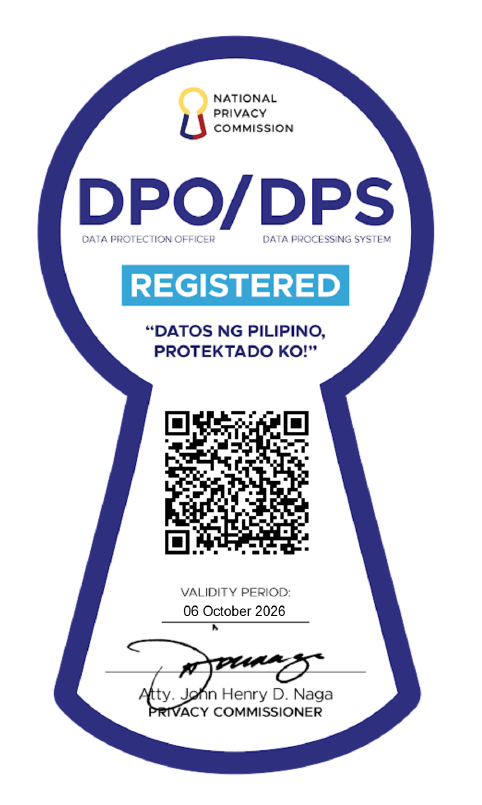Diliman, Quezon City—The Development Academy of the Philippines (DAP), through the Center for Governance, hosted the second installment of the 2025 Thursday Talks Series, featuring a deep dive into the challenges and opportunities surrounding maritime governance, national security, and economic potential in the West Philippine Sea.
The session, titled “Securing the Seas: Safeguarding Strategic Interests in the Philippine Maritime Domain,” built on the series’ first lecture that highlighted the need to uphold the country’s national interests amid shifting global dynamics. The event reinforced calls for good governance and institutional resilience as critical drivers of a sustainable and inclusive future for Filipinos.
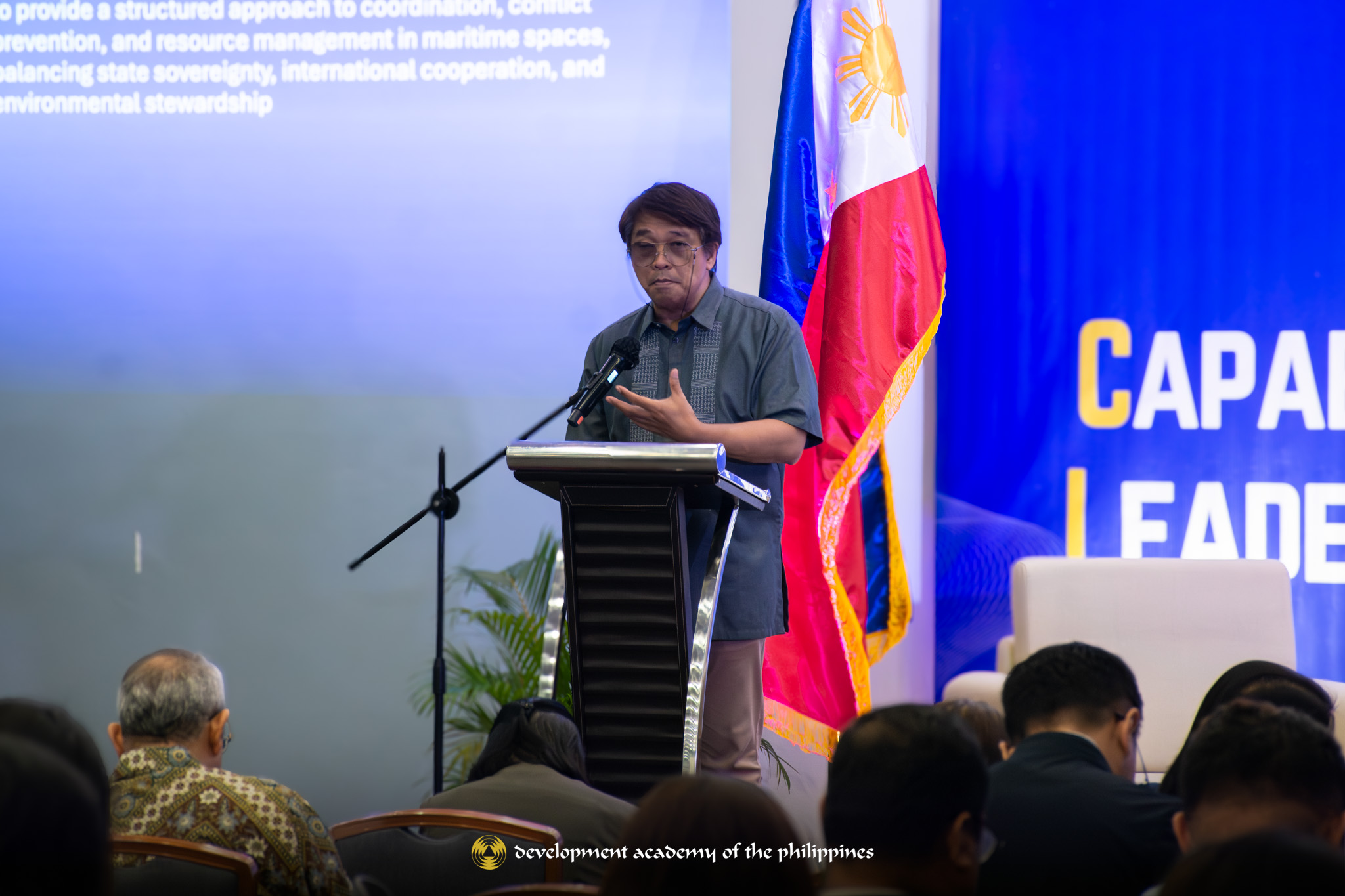 Prof. Herman Joseph Kraft from the UP Department of Political Science discusses Philippine maritime domain security.
Prof. Herman Joseph Kraft from the UP Department of Political Science discusses Philippine maritime domain security.
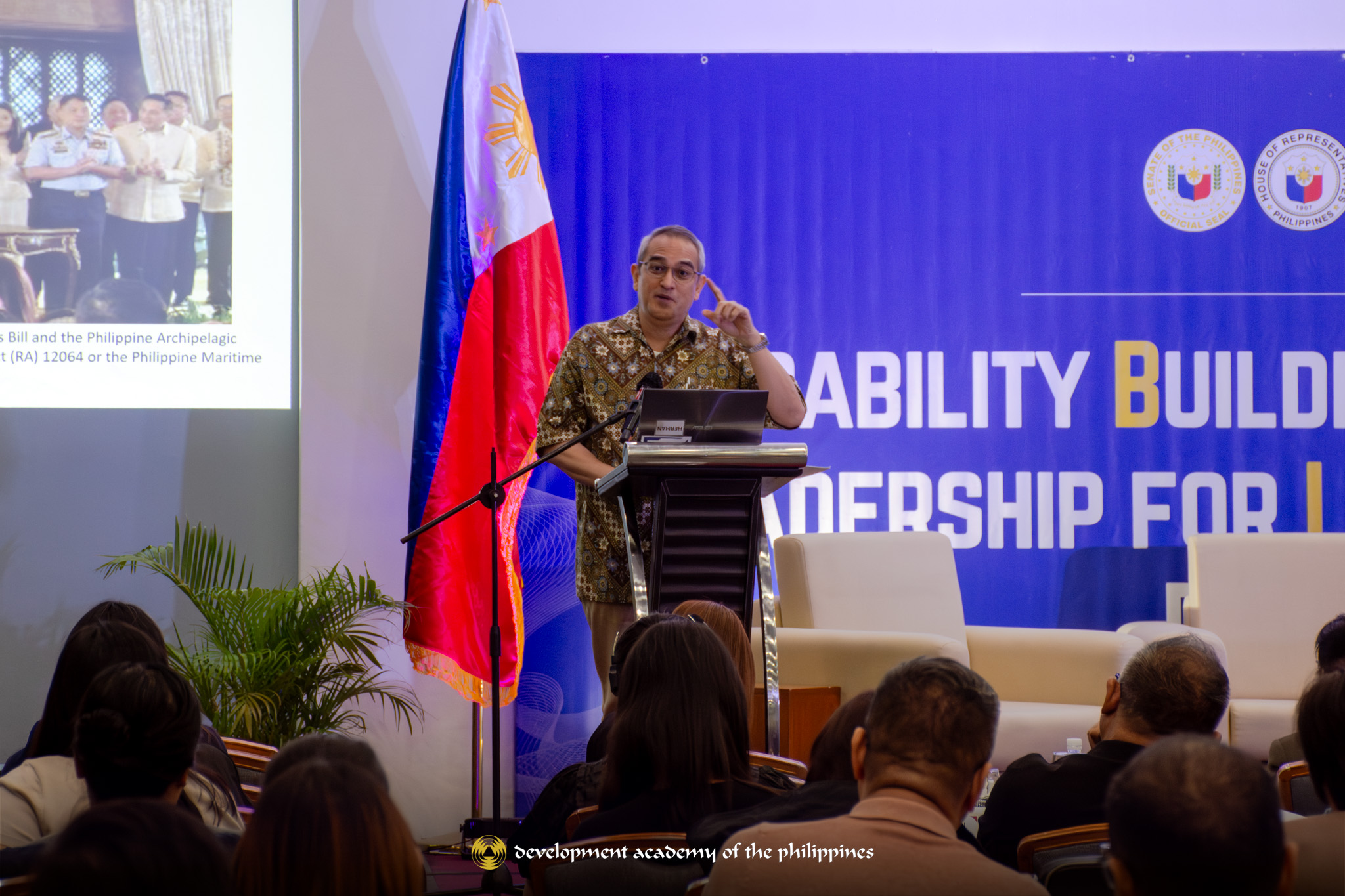 Atty. Jay Batongbacal from the UP College of Law delivers a lecture on the legalities of the Philippine maritime landscape.
Atty. Jay Batongbacal from the UP College of Law delivers a lecture on the legalities of the Philippine maritime landscape.
Opening the discussion, Prof. Herman Joseph Kraft from the University of the Philippines – Department of Political Science emphasized the country’s persistent “sea blindness” despite its identity as an archipelagic nation. He pointed out that policymaking has often prioritized land over marine concerns, resulting in missed opportunities to harness ocean resources.
Prof. Kraft also addressed China’s “illegal, coercive, aggressive, and deceptive” (ICAD) tactics in the West Philippine Sea and explained the Comprehensive Archipelagic Defense Concept (CADC), which combines sustained maritime patrols, accelerated naval and air capability modernization, and strengthened partnerships with the United States, Japan, Australia, and Germany.
Adding a legal perspective, UP College of Law Professor and UP Institute for Maritime Affairs and Law of the Sea (IMLOS) Director Atty. Jay Batongbacal discussed the statutory and constitutional bases of the Philippines’ maritime claims in line with the United Nations Convention on the Law of the Sea (UNCLOS). He also reviewed jurisdictional overlaps across municipal, national, and Bangsamoro waters and examined how laws collectively shape an integrated maritime governance framework.
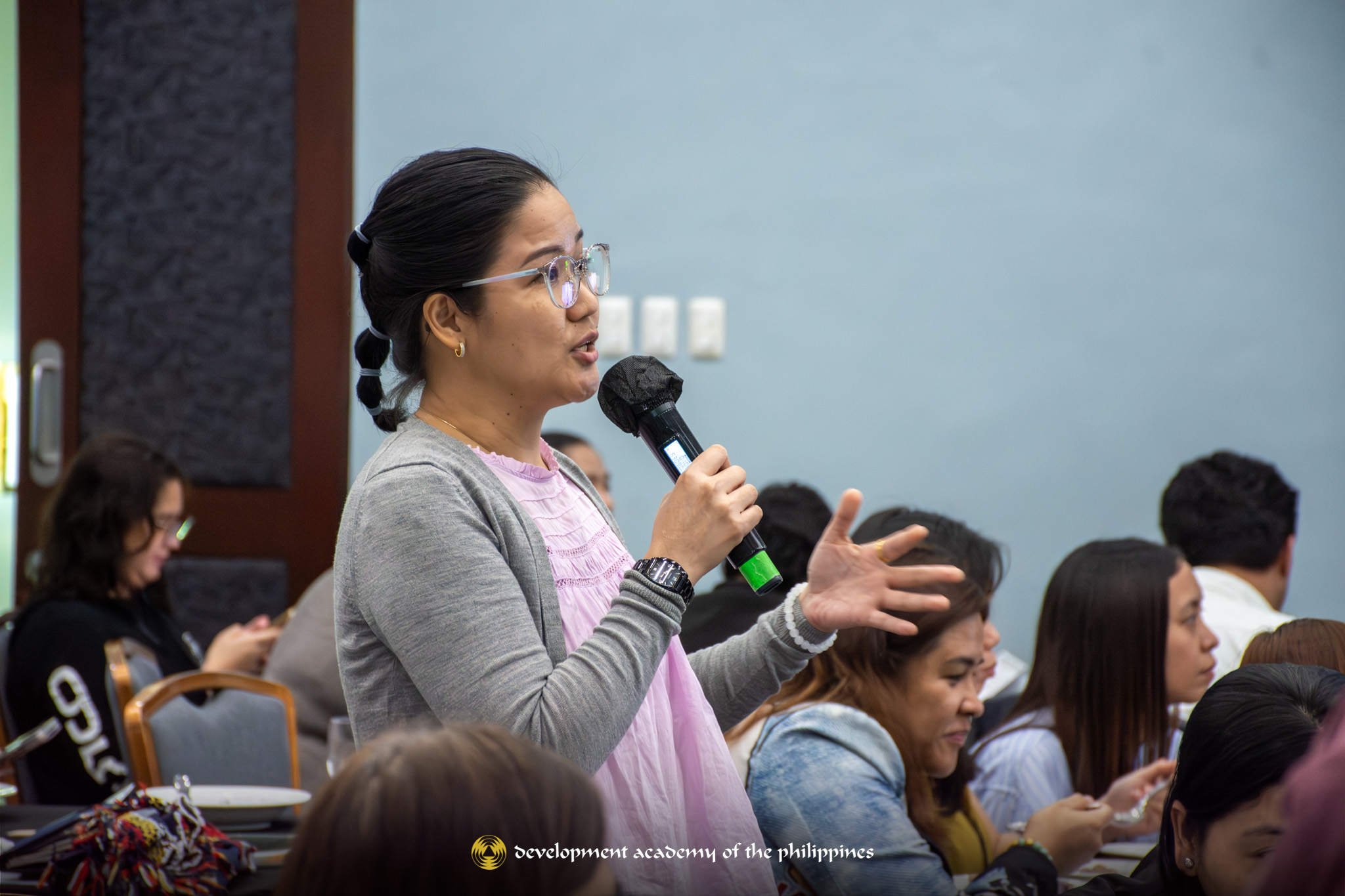 A CBILLS scholar engages in the discussion, examining the conflicts, challenges, and opportunities for growth surrounding the West Philippine Sea during the Thursday Talks session.
A CBILLS scholar engages in the discussion, examining the conflicts, challenges, and opportunities for growth surrounding the West Philippine Sea during the Thursday Talks session.
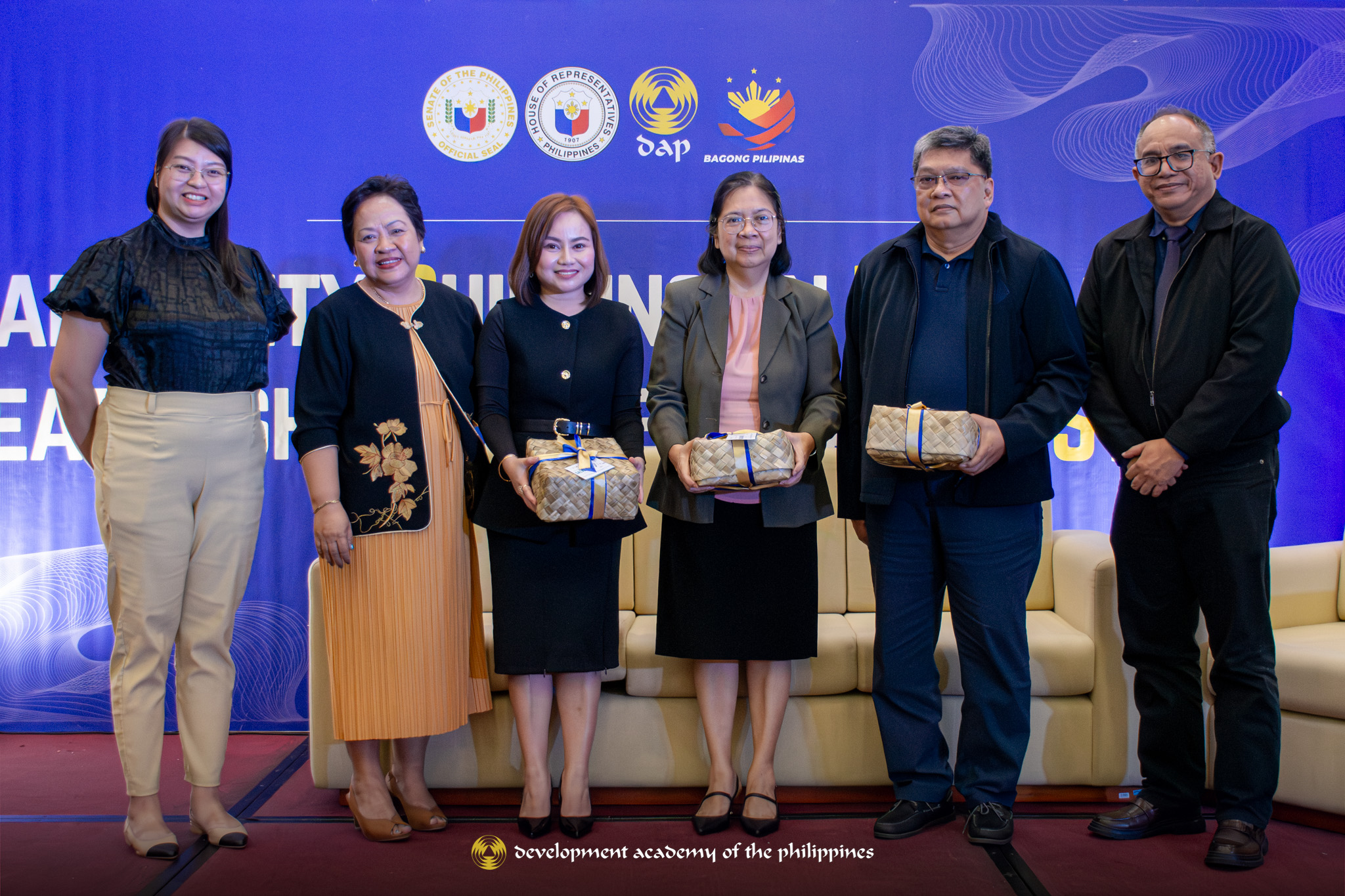 DAP-CFG Vice President Imelda Caluen (second from left), CBILLS Program Manager Ma. Czarina Krisha De Leon (leftmost), and DAP-CFG-PRO Director Gilbert Lumantao (rightmost) present tokens of appreciation to resource persons [L-R, from 3rd from left] moderator Ms. Villasante, ADG Acuña, and Ret. RADM Ong.
DAP-CFG Vice President Imelda Caluen (second from left), CBILLS Program Manager Ma. Czarina Krisha De Leon (leftmost), and DAP-CFG-PRO Director Gilbert Lumantao (rightmost) present tokens of appreciation to resource persons [L-R, from 3rd from left] moderator Ms. Villasante, ADG Acuña, and Ret. RADM Ong.
In the afternoon panel discussion, Professors Kraft and Batongbacal were joined by National Security Council Assistant Director General Ma. Carmina Acuña and Ateneo School of Government Professor of Praxis and Senior Research Fellow, retired Philippine Navy Rear Admiral Rommel Jude Ong. Together, they examined the country’s deterrence posture, strategic communication, and governance gaps.
The panelists emphasized the need to shift from reactive policymaking to a long-term national strategy. They recommended measures such as civil and military deterrence, asymmetric defense strategies, and regional alliances to counter growing external threats. They underscored the role of legislative action in advancing the Blue Economy Bill, enacting laws to address foreign interference and espionage, and ensuring checks and balances on critical national issues, including those beyond military modernization.
Serving as moderator, House Committee on Foreign Affairs Secretary Jonalyn Villasante synthesized the discussion by stressing the importance of integrating maritime security, legislative foresight, and inter-agency coordination. She reaffirmed that safeguarding the Philippine seas is vital not only for national defense but also for inclusive development and regional stability.
The lecture, held on June 26, 2025, at the Microtel by Wyndham UP Technohub, is a part of the Capability Building on Innovative Leadership for Legislative Staff (CBILLS) Program.



